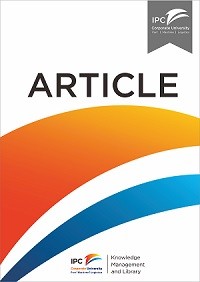Article
Evaluate VTS benefits: A case study of Zhoushan Port
It has been well acknowledged that Vessel Traffic Services (VTS) has played a growing important role to ensure the safety of navigation in the busy ports and waterways. However, the benefits produced by VTS are usually ignored by the public and private sectors. Besides, the previous evaluations generally exist following problems: (1) It is difficult to collect the data for the parameters in the evaluation models and/or the parameters are designed illogically; (2) Those models did not take the following factors into consideration such as reducing the frequency of coastal vessel patrolling and saving human and material resources; (3) It is difficult to clearly discriminate the benefits derived from VTS and non-VTS. In this paper, a framework is presented to calculate the benefits of VTS in China. Four key indicators (safety, traffic efficiency, environmental protection and reducing supervising cost) and quantitative methods have been introduced into the framework. When calculating the benefits quantitatively, the traffic condition before the construction (expansion) of the VTS has acted as a benchmark. For a case study, the project of the expansion of VTS in Zhoushan Port, East China was evaluated with 10-year data. According to the results, the largest contribution is from the benefit of environmental protection. Via Cost-benefit analysis the benefit cost ratio (B/C) of the VTS is up to 5.248, which shows the benefits produced by VTS are considerable. The research could provide references for VTS benefits evaluation and investment optimizing
Ketersediaan
Informasi Detail
- Judul Seri
-
ScienceDirect
- No. Panggil
-
ATC PO MOU e
- Penerbit
- China : Elsevier., 2015
- Deskripsi Fisik
-
10 p.
- Bahasa
-
English
- ISBN/ISSN
-
-
- Klasifikasi
-
PO
- Tipe Isi
-
-
- Tipe Media
-
-
- Tipe Pembawa
-
online resource
- Edisi
-
-
- Subjek
- Info Detail Spesifik
-
-
- Pernyataan Tanggungjawab
-
Jun-Min MOU
Versi lain/terkait
| Judul | Edisi | Bahasa |
|---|---|---|
| a Quantitative analysis of European port governance | Maritime Economics & Logistics (2012) 14, 178–203 | id |
Lampiran Berkas
Komentar
Anda harus masuk sebelum memberikan komentar

 Karya Umum
Karya Umum  Filsafat
Filsafat  Agama
Agama  Ilmu-ilmu Sosial
Ilmu-ilmu Sosial  Bahasa
Bahasa  Ilmu-ilmu Murni
Ilmu-ilmu Murni  Ilmu-ilmu Terapan
Ilmu-ilmu Terapan  Kesenian, Hiburan, dan Olahraga
Kesenian, Hiburan, dan Olahraga  Kesusastraan
Kesusastraan  Geografi dan Sejarah
Geografi dan Sejarah